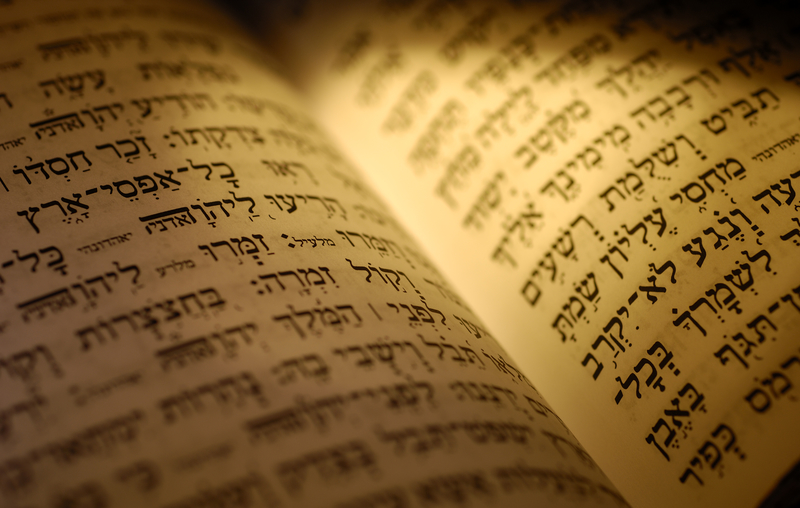
This weeks Parashah opens up with the laws of Parah Adumah, the Red Heifer (cow). This law of the Parah Adumah is a decree from Hashem that's beyond human comprehension. This law is considered a Hok which is a law that Hashem has not revealed the reason to us. More than that, it's a paradox because the ashes of the Red Cow will purify anyone who has become contaminated by having contact with a dead body, yet those who engage in its preparation become themselves contaminated.
It was regarding this aspect of its laws that King Solomon exclaimed in proverbs, "I said I would be wise, but its far from me". Rabbi Yohanan told his students regarding our failure to understand the laws of the Red Cow, "Its not the corpse that causes contamination or the ashes of the cow that cause purity. These laws are decrees from Hashem, and man has no right to question them". In other words, an essential component of wisdom is the knowledge that man's failure to understand the truth does not make it untrue!
There's a story in Masekhet Kiddushin (31a), where the Rabbis wanted to a buy a stone for the ephod from a non-jew that would make him a great profit. But the key to the non-jew's safe was lying under his father's pillow while his father was sleeping and he would not disturb his father's sleep to get the key.
The next year, Hashem blessed this non-jew again with the parah adumah in his herd. So the Rabbis went to him to purchase the parah adumah. He said to the Rabbis that I know that if I asked you for all the money in the world, you would give it to me. But I will only ask for the amount that I lost as a result from honoring my father last year.
We learn from this, the reward that even a non-Jew receives in this world for the respect that he showed his father. How much more so of a reward will we receive as Jews, who are commanded from the Torah to respect our parents!
At this time and because of this story, there was a prosecution against the Jewish people because it was known that a goy was willing to lose so much money to respect his father which overshadowed B'nei Yisrael who were commanded to keep this mitzvah.
On the other hand, Hashem gave this mitzvah of the Parah Adumah, to show how the Jewish people will spend such a large sum of money even on such a mitzvah as Parah Adumah, that seems to us to be so illogical. Other examples of this is the amount of money that we spend on an Etrog for Succot or Sh'mura Matzah on Pesah or tefilin etc.
There's a famous story that Rabbi Diamond told us about the time that General Eisenhower visited the displacement camps after the Holocaust. He saw the Jewish people suffering from disease and malnutrition and asked them, "Pease tell me what can the US Government get for you.Tell me what you need?" The Kleisenberg Rebbe was the spokesman for the people and said, "It's getting close to the time of our holiday of Sukkot, can you get us Lulavim and Etrogim so we can do our Mitzvah?" The General was shocked at this request because he thought they would ask for food, clothing or other basics to make them more comfortable, but a Jew needs his mitzvot to survive in this world and thats what connects us to Hashem which is the true life source of all Jews!
We also learn in this weeks Parashah about the reasons that Hashem didn't allow Moshe and Aharon to enter the land of Israel. We always learned that the reason that Moshe wasn't allowed to enter Israel was because he hit the rock, rather than speak to the rock, as Hashem commanded him to, but there's much more to it than that. At this time, Miriam had just passed away and B'nei Yisrael didn't mourn her properly.
The water that flowed for B'nei Yisrael through their journeys in the desert to supply the people was a zechut for Miriam. The reason that Miriam had this zechut was from a 'midah keneged midah' from when she was a young girl when Moshe was born. Miriam watched over Moshe as a baby as she and her mother put him in a basket and placed that basket in the River as she followed it to make sure he ended up in good hands.
So too, did the water follow her and watch over her when they sojourned in the desert for 40 years. But now that Miriam passed away and no tears were shed for her as they would for Moshe later on, Hashem held back their drinking water. Therefore B'nei Yisrael complained of having no water to drink and Hashem gave Moshe the instructions of how to bring water for the people by speaking to the rock. Moshe tried to speak to the rock at first but it didn't work, so he hit the rock.
It says in perek 20 pasuk 8, "Kah et Hamatteh"… "Take the staff and gather together the assembly, you and Aharon your brother, speak to the rock before their eyes that it shall give its waters". As he was commanded, Moshe took the staff and went with Aharon to summon the entire assembly and give them water in such a way that Hashem's name would be sanctified.
Moshe succeeded in drawing forth water from a stone, but did not sanctify Hashem's name at least in the way and to the degree to which he had been commanded. The exact nature of this sin has puzzled the Rabbis and has been variously interpreted by the commentators. "Yaan lo he-emanetem bee" … "Because you did not believe in Me". Hashem wanted everyone to know that Moshe and Aharon were not implicated in the sin of the spies, and they would have entered the land had it not been for their error at the rock.
If they had sufficient faith and continued to speak to the rock, water would have come from the proper rock and Hashem's name would have been sanctified, and all of B'nei Yisrael would have drawn the intended lesson that "If a rock, which does not speak or hear, and doesn't need sustenance, listens to the word of Hashem then of course how much more of a lesson would that be for us to listen and follow the words of Hashem!"
Even Rambam comments that this is really beyond the scope of our comprehension and one of the great secrets of the Torah. Rashi's view is simply that Moshe sinned because he struck the rock, rather than speaking to it as Hashem commanded him to. He also states that Moshe sinned because he became angry at the people for demanding water. Rabenu Hananel, whose view is joined by Rambam says the key words are when Moshe asks the question in a rhetorical way, "Shall we bring forth water?" Implying that Moshe and Aharon have the power to bring water on their own. Rather Moshe should have said, "Shall Hashem bring you water?" So this is why Hashem said that they didn't sanctify Hashem's name.
Abarbanel agrees with Rashi that the immediate cause for the sin was hitting the Rock but he says that there's another reason. One reason is that Aharon had a hand in the sin of the golden calf which caused national suffering and was a sin that we continue to suffer from until this very day.
Another reason is that Moshe sent the spies to check out the land whose false report brought the punishment of wandering through the desert for the next 40 years and the death of an entire generation. So for this reason, it would seem unfair that the nation would not enter the land. So Hashem chose to keep Moshe and Aharon from entering the land, just as the rest of the generation was not allowed since they were their leaders and were held responsible for the peoples actions.
Later on in the desert B'nei Yisrael were walking through an area between two cliffs where their attackers were waiting above hiding in caves and planning to drop boulders on them as they passed through below. But unknown to Am Yisrael, Hashem performed a hidden miracle to join the cliffs together above, thereby crushing their enemies as they were plotting against them. B'nei Yisrael passed through as if nothing had happened until they saw the blood of their enemy fall from above.
Hashem wanted Israel to see the meaning that they should have blind faith or Bitahon and that Hashem is protecting them without showing the world open miracles as He did when He was saved them from the hands of Pharaoh. If they could have achieved that perception, then the barriers to belief in Hashem would fall away and the nation of Israel could rise to unimaginable new heights in Emunah! Moshe hit the rock and the water flowed but Moshe failed to inculcate them with this perception, "Le Enehem"… "Before their Eyes".
May we all learn from this how important it is to respect our parents even for a mitzvah that we may not understand. May we also know that Hashem is always with us and although we may not see open miracles today, we must realize that Hashem is there for us and is performing miracles that are hidden but sometimes He allows us if we have zechut to see their after effects.
Parasha perspective By Jack E. Rahmey from the teachings and guidance of Rabbi Amram Sananes.







